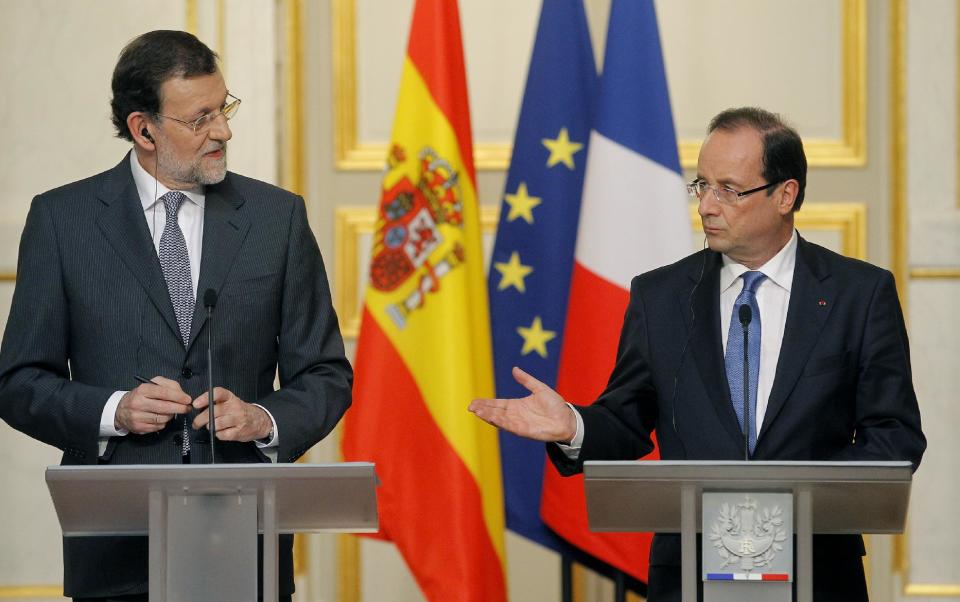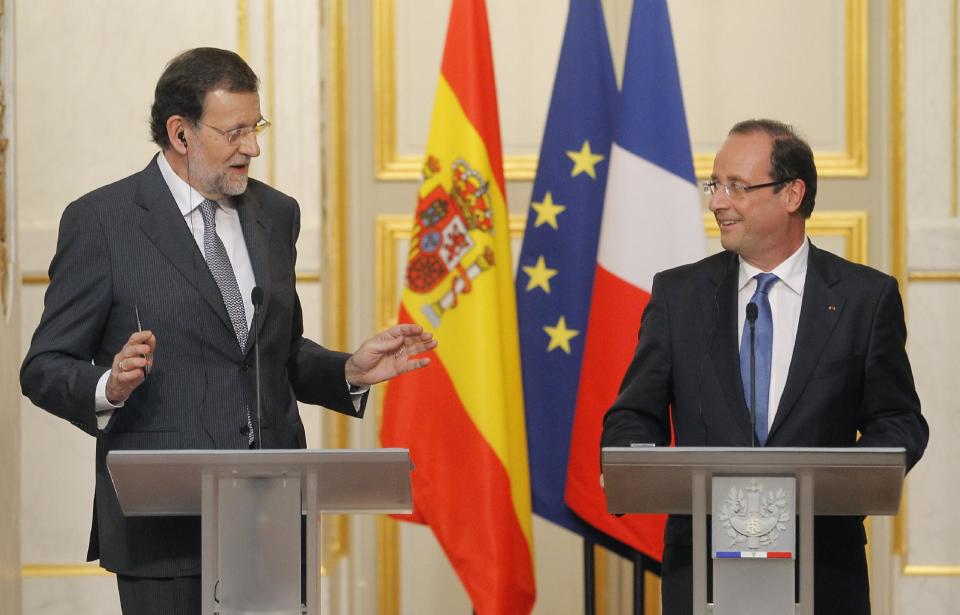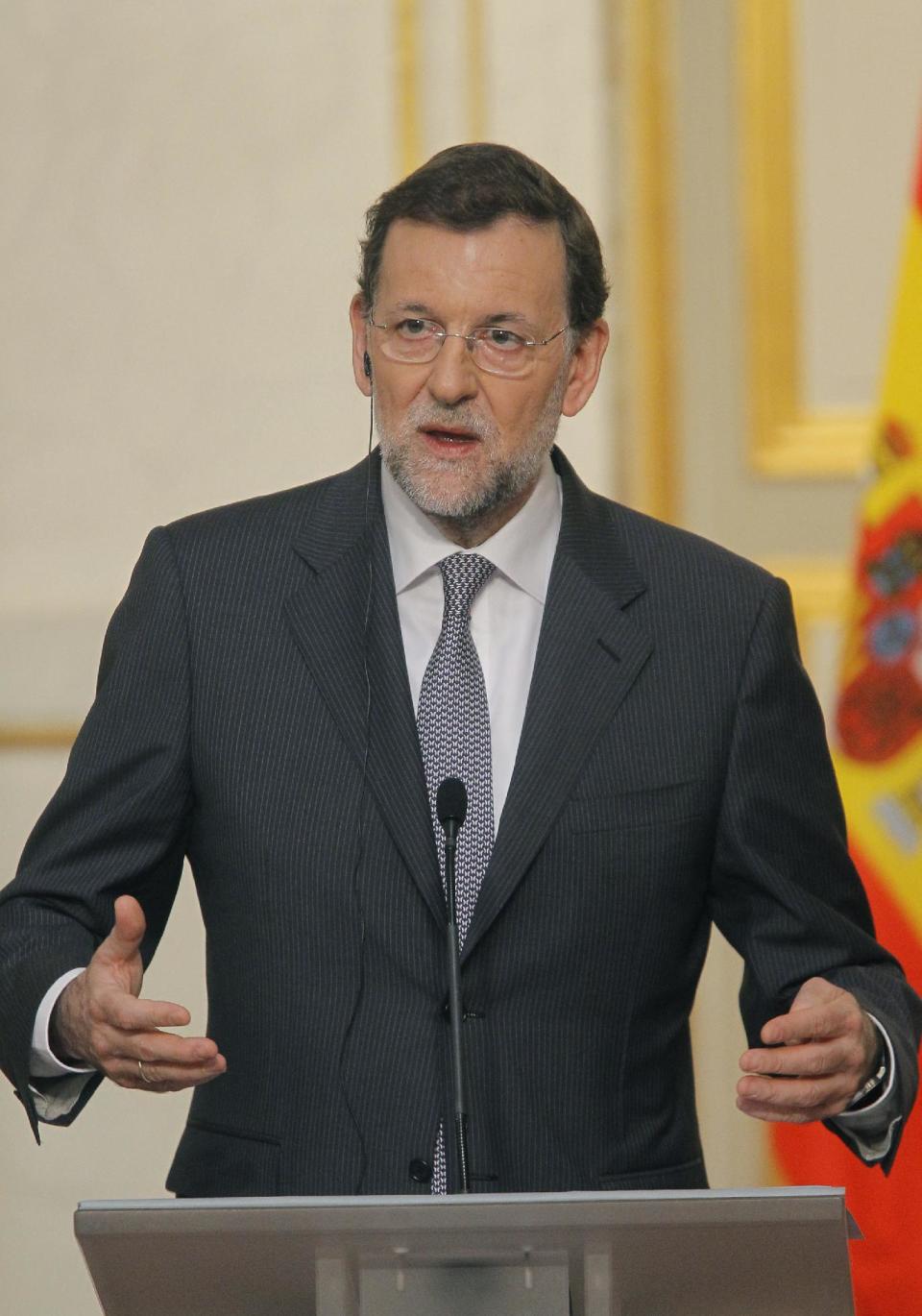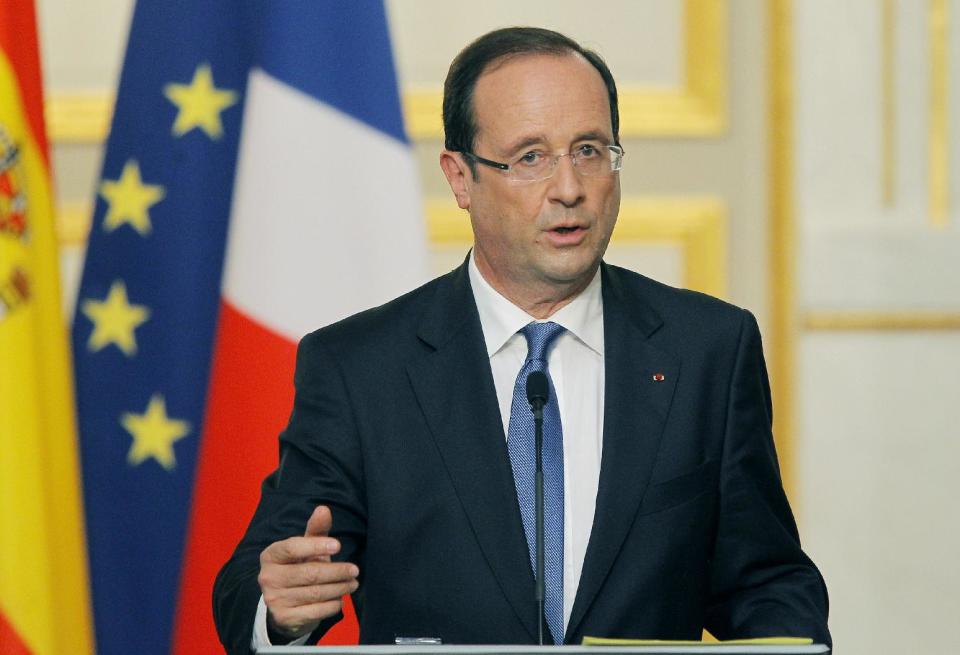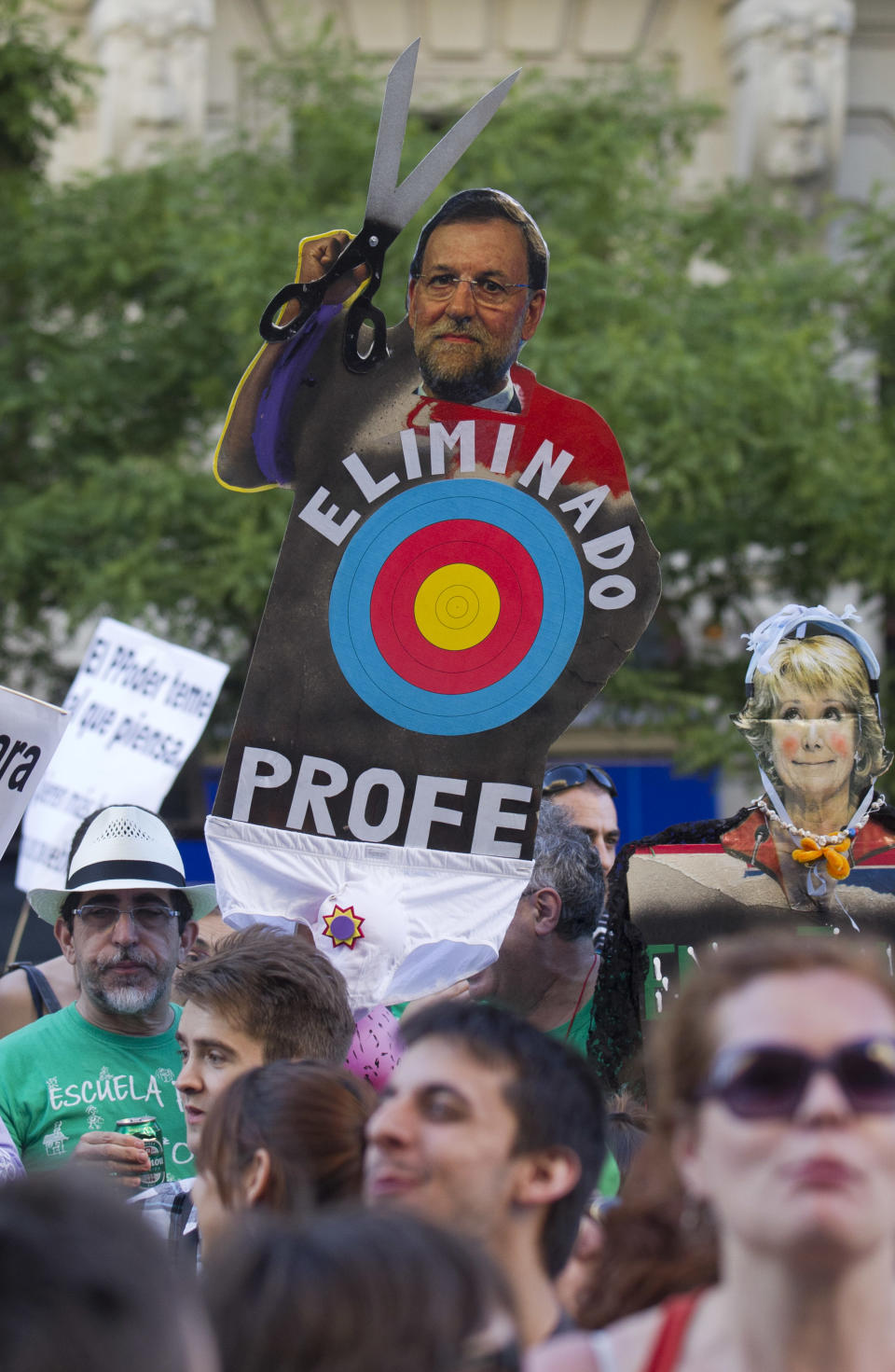Spain calls for help to lower borrowing rates
BRUSSELS (AP) — Worries about Greece's electoral turmoil and Spain's spiraling borrowing costs are piling the pressure on European Union leaders meeting in Brussels on Wednesday amid renewed market pressure to keep the region's debt problems from getting worse.
Spain's prime minister warned that his country can't continue much longer with its current high borrowing rates and urged a joint European response to help.
Mariano Rajoy and newly elected French President Francois Hollande, heading later in the evening to meet other European Union leaders in Brussels, also stressed their commitment to keeping Greece in the euro despite its political uncertainty.
"Europe has to come up with an answer. It is a must, because we cannot go on like this for a long time, with large differences when it comes to financing ourselves. And it is because of these differences that the policies that we Europeans believe in, such as controlling government spending and reforms to encourage growth, ultimately have no effect," Rajoy said in Paris alongside Hollande.
"So I am going to talk about liquidity, financing and debt sustainability. For me it is the most important thing today. There are a lot of important things but this is the most urgent one," he said.
Expectations were low, however, that the leaders gathering in Brussels will agree to any concrete measures to boost growth and stability in the 17-country eurozone. Europe's main stock indexes plunged more than 2 percent Wednesday, with Spain's Ibex down 3.3 percent. The euro fell 0.5 percent to $1.2588, its lowest since August 2010.
Spain's borrowing rates are high — and rising — because of fears that its government finances might be overwhelmed by the costs of rescuing its ailing banking sector. High borrowing rates are at the heart of Europe's crisis and have already caused Greece, Ireland and Portugal to need bailouts.
Rajoy suggested the European Central Bank resume some of its emergency measures, such as buying the bonds of weak countries, which has the impact of lowering countries' borrowing rates.
The ECB has suspended the purchases because, as an independent body, it does not want to be seen supporting governments directly. Instead, it has given European banks massive amounts of cheap loans to bolster confidence in the financial system.
Hollande said the ECB's role would be discussed by European leaders, and said he will formally propose so-called eurobonds — debt issued jointly by eurozone countries — at Wednesday's summit.
Such bonds would aim to bring down borrowing rates for financially weak states by distributing the risk of their debt across the whole region. Germany is opposed to such a move because it would raise its own borrowing rates and reduce the pressure on heavily indebted governments to heal their finances. Rajoy said he doesn't think the 27 EU leaders will resolve the eurobond dispute Wednesday.
Pressure is rising on European leaders to agree to new growth measures to complement the budget cuts. Both the International Monetary Fund and the Organization for Economic Cooperation and Development have said the pace of austerity measures should be slowed in some countries to lower the risk of a severe recession.
The OECD, which monitors economic trends in developed economies, openly called for the use of eurobonds and more emergency measures from the European Central Bank to keep the slowdown from dragging down the global economy.
German government lawmakers lined up to denounce eurobonds in a parliamentary debate in Berlin shortly before the summit started.
"If something is wrong, it's wrong, and then you have to say it — and not say that when a lot of people want the wrong thing that suddenly makes it right," said Michael Meister, a senior lawmaker with Chancellor Angela Merkel's conservative Christian Democrats.
Another Christian Democrat, Frank Steffel, pointed to the prospect of higher borrowing costs for Germany. "Where does the conceivable benefit of these eurobonds lie? One thing is clear — the benefit definitely does not lie with the German taxpayer," he said.
Hollande insisted he would stick by his push for a Europe-wide growth pact by the end of June. He won election earlier this month in part on his attacks on austerity measures championed by his conservative predecessor Nicolas Sarkozy and Germany's Merkel. His political plans remain uncertain, however, depending on whether his fellow Socialists take control of parliament in legislative elections next month.
Alongside economic growth, Greece's electoral turmoil and dismal finances will be high on leaders' minds in Brussels. Hollande said he would "do everything to convince the Greeks to stay in the euro."
Rajoy agreed there was no doubt the country should remain in the currency union: "What I want is that Greece stays in the eurozone, that's what's best for Greece and best for Europe."
Greece's Evangelos Venizelos, leader of the center-left PASOK party, acknowledged in Brussels that "the situation is very fragile." He said he hoped cooperation of fellow European leftists such as Hollande "will give the possibility to organize, to send a concession framework in the common interests of Greece and of the eurozone, a concession framework for stability, for growth and for social cohesion."
Borrowing costs are up for the most indebted governments. There is an increasing number of reports of worried savers and investors pulling funds out of banks that are seen as weak. Meanwhile, unemployment is soaring as recession grips nearly half the eurozone countries.
___
Thomas Adamson and Sylvie Corbet in Paris, Geir Moulson in Berlin and Daniel Woolls in Madrid contributed to this report.

